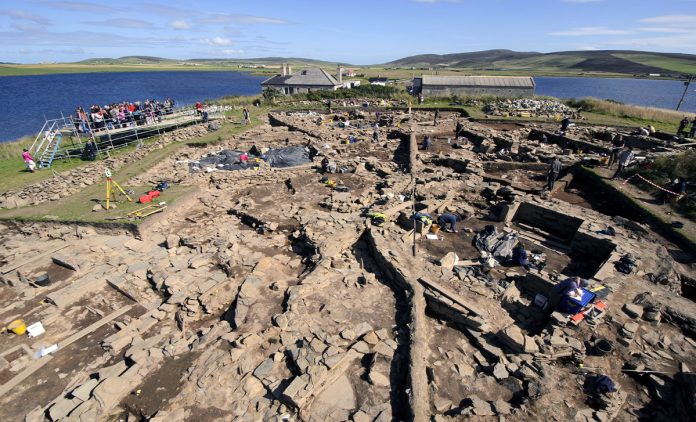The renowned Ness of Brodgar site in Orkney, one of the most significant Neolithic locations in the British Isles, is undergoing a major conservation effort. After twenty years of meticulous excavation, the site is being covered up to protect its fragile structures from further erosion.
Importance of the Site
Located between two lochs and southeast of the Ring of Brodgar, the Ness of Brodgar has revealed 40 ancient structures, offering invaluable insights into prehistoric Orkney. These findings have significantly advanced our understanding of Neolithic culture and settlement in the region.
Challenges of Preservation
Nick Card, the excavation director and chair of the Ness of Brodgar Trust, has highlighted the emotional and practical challenges of this decision. The quarried stones used in the construction of the site are particularly susceptible to weathering, making it necessary to cover the site to prevent further deterioration.
Continued Research and Cataloging
Despite the end of physical excavation, research and documentation of the site’s findings will continue. The team aims to compile a detailed narrative of the site, ensuring that the knowledge gained will be preserved and accessible for future study.
Impact on Tourism
The Ness of Brodgar has been a significant attraction, drawing 20,000 visitors this year. The site’s closure to excavation marks the end of a popular chapter in Orkney’s archaeological history. However, other notable Neolithic sites in the area, including the Ring of Brodgar and Skara Brae, remain open for public exploration.
Future Prospects
As the team prepares to cover the site, there is optimism that future advancements in archaeological techniques will allow for deeper exploration. The goal is to protect the site while leaving a legacy that will benefit future archaeologists and historians.







